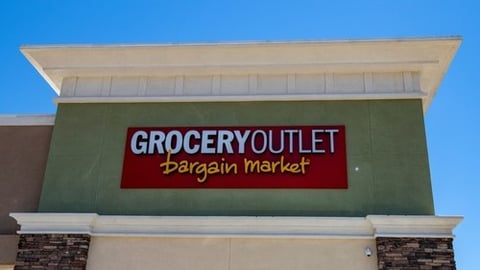National Retail Federation Sues New York Over Algorithmic Pricing Law
The National Retail Federation (NRF) filed a lawsuit on July 2 in the U.S. District Court in Manhattan in an effort to block a New York state law set to go into effect next week that requires retailers to disclose the use of “algorithmic” pricing. NRF claims that the measure would unfairly malign a system that helps merchants give customers lower prices and personalized offers.
As consumers spend more of their time and money online, they're also sharing more information like browsing behavior, location and purchase history with the companies they interact with. New York Gov. Kathy Hochul has argued that corporations can collect this personal data, feed it into algorithms and generate a price that's individual to a consumer. This practice, which a Federal Trade Commission study has dubbed “surveillance pricing,” could permit retailers to “target” individual consumers with different prices for the same products. Hochul called this an “opaque” practice that strips consumers of their ability to comparison shop and plan for the price of goods and services.
[RELATED: Progressive Grocer's 92nd Annual Report]
As a result, Hochul signed the New York Algorithmic Pricing Disclosure Act on May 9, which was passed with little debate as part of the state’s budget bill. Set to take effect July 8, the measure requires retailers to notify online shoppers when prices are set based on their personal data, by placing a disclosure next to each affected product that reads, “This price was set by an algorithm using your personal data.”
However, NRF’s suit contended that the law, which is “replete with arbitrary exemptions,” violates both the First and 14th Amendments and asked for both preliminary and permanent injunctions blocking its enforcement. “This act compels NRF’s members to impugn their pro-consumer practices against their will,” NRF noted in the lawsuit.
“Retailers use algorithmic pricing to help customers save money” by using their purchase history, items in their online shopping cart, ZIP code and other information customers voluntarily share, rather than any personal sensitive data, the complaint said.
“Despite this, the State of New York will soon require many retailers to affix a misleading and ominous warning to any price set by an algorithm using any information that could be linked to a customer," claimed NRF. "Although the state is free to express its opinion that algorithmic pricing is dangerous, it cannot force businesses that disagree to do so.”
The suit said that the law “is unsupported by any facts” that algorithmic pricing is inherently harmful. Any discrimination or price gouging that might inadvertently occur is already prohibited by other state laws, the suit pointed out.
NRF said that its members and other businesses have historically used data received in the ordinary course of business to provide promotions to customers. Grocers, for example, have long offered coupons at checkout for items similar to those purchased. Coffee shops have also offered rewards cards giving repeat customers every 10th cup free. Additionally, an online merchant might offer a promotion to a customer who leaves a product in an online shopping cart for a number of days.
[RELATED: San Diego Bans Digital Coupons From Grocery Stores]
It’s normal practice for retailers to check what competitors charge, make seasonal price adjustments or offer promotions based on intuition. Using algorithmic pricing, “[t]hey simply do it with greater sophistication and on a much larger scale,” the suit said.
“This law interferes with retailers’ ability to provide their customers with the highest value and best shopping experience they can,” noted NRF Chief Administrative Officer and General Counsel Stephanie Martz. “Algorithms are created by humans, not computers, and they are an extension of what retailers have done for decades, if not centuries, to use what they know about their customers to serve them better. It’s just done at the scale of the modern economy. Stigmatizing tools that drive prices down turns offering deals into a liability, and consumers will end up paying more."
Washington, D.C.-based NRF advocates for the people, brands, policies and ideas that help retail succeed. According to the organization, retail is the nation’s largest private-sector employer, contributing $5.3 trillion to annual GDP and supporting more than one in four U.S. jobs — 55 million working Americans.






